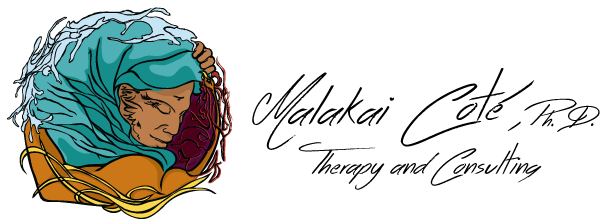How often have people heard the following?:
You cry too much.
You are not pretty enough.
Damn, you have dark skin!
Is that your belly hanging over your pants?
You don’t look like a woman.
You don’t sound like a man.
Who do you think you are fooling?
You really want to date him?
How did you even get this job?
Black people aren’t good at that...
External perceptions often contribute to who we think we are and, at times, how we feel about ourselves. Early sociological theorists posited the idea of the “looking glass self.” This theory addresses how we understand self as shaped by the perceptions of others and how others interact with us. Self-knowledge occurs through the feedback we receive outside of ourselves. Simply stated, as humans, we often look to others as a mirror to understand who we are. Some folks also use interpersonal feedback to guide actions and change behaviors. It is important to highlight that the perceptions that people hold are informed by personal motives and also social positioning such as race, class, sexuality, religion, gender, etc. Additionally, people’s experiences in the world begin to tailor how folks appraise the identities, values, and behaviors of other people.
What about when the perceptions of others are limited? What happens when perceptions are founded upon prejudice, bias, and/or unrealistic ideals? What happens when our humanity and self is obscured by socially oppressive norms and expectations? It is as if the mirror becomes a Carnival Mirror that distorts what we see. We then never have a true view of self because the mirror lens is contorted.
So, the question becomes what reflections do people choose to trust? Also, who do individuals trust to inform them about who they are and why do they trust these sources?
Let me provide a brief example: A child assigned male at birth who is emotionally distressed and crying is repeatedly told by a caregiver that there is nothing to cry to about, get over it. Additionally, the child is told, "boys don’t cry, man up.” The child may begin to believe that their distress is wrong and/or that they are wrong or bad for feeling how they do. At this point in development, it maybe most helpful for the child to stay in relationship with the caregiver, thus feeling compelled to follow the directives of the caregiver. "Fitting in” or fulfilling specific expectations serves as an important function of belonging. Also, in efforts to assuage masculinity norms, the child may bite their lip, sniffle, and emotionally harden. These ways of being often persist with further reinforcement throughout developmental processes. Efforts to get right with self can often be laden with difficulty because of the multiple messages, judgments, and feedbacks that abound about how one SHOULD BE in the world.
However, the feedback received from the outside may be misinformed and oppressively prescriptive. If a person is crying, then there was actually something to cry about! Sex and gender have very little to do with this human response. The manifestation of the distress resided in the bodily experience of warm, salty tears running down the person’s cheek, maybe even in a pang in the chest, or a throb in the heart. The feedback from the outside; however, indicated to the child that their felt experience was wrong. For some young people, they may start to believe that they are wrong in feeling and being when they do not perform gender, sexuality, ethnicity in the ways that have been socialized and reinforced. This type of invalidation of experience has the potential to foster disconnect with self and also disconnect from important emotional, social, and psychological needs.
Your body sensations, thoughts, and feelings provide important information about what’s up with your being. These are important signals.
In meditation and also within silent reflection, people have the greater means to slow things down enough to notice the signals. Individuals have the opportunity to compassionately be present with the feelings and to more thoroughly acknowledge sensation, thought, and feeling as they arise, shift, and change. Folks may have greater ability to operate from a more grounded center with a greater understanding of the presence of this triad (i.e., emotion, thought, and sensation). It then becomes a process of how do we orient to the arising and falling of emotion, thought, and sensation?
Under the conditions of social oppression and marginalization, obscurity abounds. The process of “undoing” and “re-doing” an understanding of self requires patience, compassion, lovingkindness, and critical consciousness. Getting right with who you are is about remembering your magnificence even in the face of obscurity.
